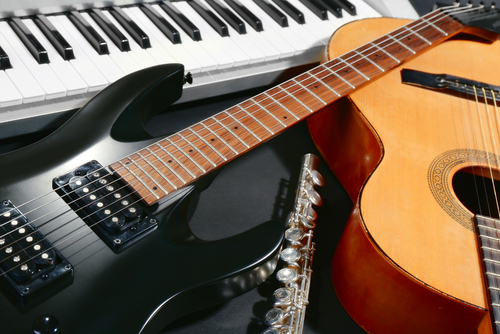
STORING YOUR INSTUMENTS - 3 IMPORTANT THINGS TO KNOW
If you’ve ever known a musician, or are one, you know this to be true: just one instrument is never enough. So, there will most certainly come a day - when you have to move, or you inherit or are gifted a collection, or countless other reasons - that you will need to store your very valuable and very delicate instruments. In order to be sure you don’t ruin your rather significant investment you will need to do it right.
CLIMATE CONTROLLED STORAGE
There really is no other choice. If you don’t use store your collection in a place that is climate controlled, wood will warp, veneers will bubble or crack, pads will get sticky and corrode, and so on. Climate control keeps the temperature and humidity constant so there will be no expanding and contracting, no sweating and molding, and most importantly, no pests. Keep in mind that this applies to more than just the instruments themselves. Anything with electrical components such as amplifiers, speakers, sound boards, pedals, etc., are also sensitive to humidity- and temperature.
CLEANING
It is absolutely necessary that you disassemble, clean, and prepare your instrument before putting it into storage. Dust that could scratch and dull the finish, sure, you need to clean that. But also grime and moisture and – dare – we say it – saliva. Gross. So it goes without saying that you’ll need to remove the mouthpieces and reeds, but straps, too. If your instrument has pads, put a piece of tissue paper under them to keep them from getting sticky or stuck. Relax the strings and bow hairs on anything but pianos. Loosen drum skins and consider conditioning drums with oils.
STORING METHODS
If you have a hard case there is nothing better, unless it is the original case that perfectly fits your instrument and all of its pieces. This will keep it from shifting or conversely being wedged in oddly. It also helps keep it from being damaged if something falls or is dropped. If you’re lucky the casing could even be water resistant. But if a soft case is all you have, that is better than a box, bag, or tub. Consider putting acid free paper over your instrument before closing the case. If the item is large and it doesn’t have a case, (think drums and piano), put a tarp or sheet over them. And for all items, except perhaps the piano, it is always safer to store them on shelves rather than directly on the floor or leaning against a wall.
When researching climate-controlled storage facilities for your prized collection keep a few things in mind. Security matters. You’ve spent a small fortune; you might want to put more than a chain link fence and a padlock between your treasures and thieves. Pest control also matters. No one wants to come back to a collection of spiders that have been living inside your grandfather’s guitar. Call or come by Sixty5 Self Storage and take a tour to experience what a top-notch climate-controlled facility should be.
